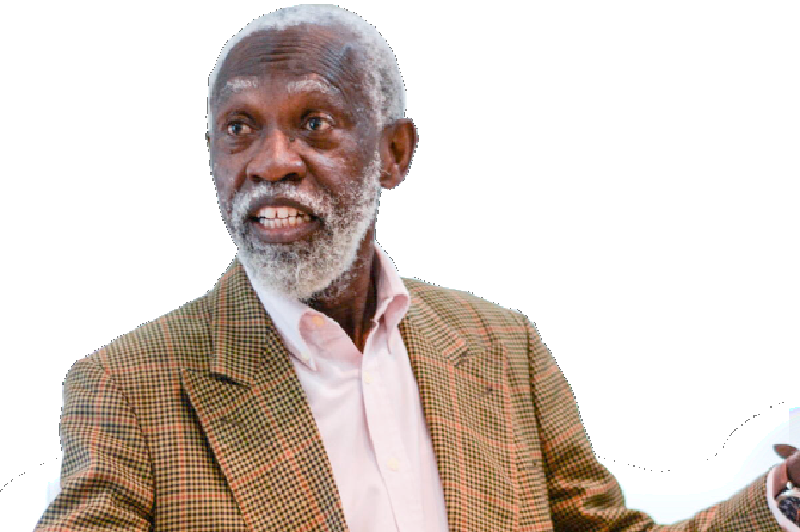
Prof. Adei paints picture of unemployment — Shares some tips to tackle problem
Unemployment is a big issue on every continent, particularly in Africa where majority of the population fall within the youth bracket.
In Sub-Saharan Africa alone, it is estimated that there are more than 600 million young people aged below 25, a situation which presents a huge unemployment challenge.
In Ghana, the situation is no different as the 2021 Population and Housing Census indicated that the country’s unemployment situation was now at an all-time high after increased population and low economic output.
It highlighted that the rate of people who were available for work but unable to find jobs had doubled to 13.4 per cent in 2021 from the 5.3 per cent recorded in 2010.
The 2021 figure, which was announced in the General Report of the 2021 Population and Housing Census, is now the highest since 1984 — when the country’s unemployment data was first reported.
Out of the economically active population of 11.54 million, the report showed that 1.55 million were unemployed.
This week on Springboard Your Virtual University, the host, Rev Albert Ocran played back his interview with a former Rector of GIMPA, Professor Stephen Adei, who shared some tips for the unemployed in the country.
Unemployment at all-time high
Prof. Adei pointed out that globally, unemployment was at the highest level since the Great Depression in the 1930s.
He said that had been further exacerbated by the COVID-19 pandemic and Russia/Ukraine conflict, which had led to many developed countries experiencing double digit unemployment rates for the very first time.
“Unemployment is now much bigger than the world has ever seen since the 1930s when we had the Great Depression. It is the worst for the world over the past 90 years,” he stated.
With regard to Africa, he said the continent’s unemployment issue was structural.
He said Africa’s unemployment situation was higher than the official numbers suggested.
Implications of unemployment
Commenting on the implications of unemployment, Prof. Adei said unemployment could be very devastating and eroded an individual’s self-confidence.
He said it could even lead to mental health issues and create family pressures, and it had potential security implications as people became desperate and vulnerable to unrest.
Nationally, he said it affected development and growth.
“There is some sort of social dislocation associated with unemployment. The workplace is a very important socialisation,” he stated.
12 tips for the unemployed
1. Redefining our models: Some nations have deliberately redefined their models for construction and other aspects of their economy, just to create jobs for their youth.
2. Attitudes: Attitudes are a major cause of unemployment. I worked as a farm labourer for three months after my Cert A teacher training. Our colonial legacy makes a graduate prefer a white-collar job that pays GH¢800 a month to a construction job that pays GH¢100 a day.
3. Opportunities: The real economy has not grown as well as it should. The public sector is not primarily responsible for employing people. At most, it employs 750,000 people. It is a facilitator for employment; rather than an employer.
4. Finding our niche: We must deliberately create a niche in our developmental effort. For example, if Ghana banned gold exports, it would compel stakeholders to process the raw material.
5. Underemployment: If we add unemployment to underemployment, we would conclude that most Ghanaians are underemployed.ir salaries may not cover all their bills, but they often also exceed their productive output.
6. Management: I assumed office at GIMPA with 400 staff and a turnover of $500,000. By the time I left, the staff number, though reconstituted, was 400, but the turnover had risen to $10 million. Productivity is not solely the responsibility of workers.
7. Personal responsibility: Ultimately, every adult is responsible for his own life. No unemployed person must blame the government, family or school. That is being irresponsible. I vowed in my youth to always be gainfully engaged in life - whether paid or unpaid.
8. Humility: Don’t see any job as below your level. The average garbage collector in the USA holds a degree. I used to sit with roast plantain (Kofi Brokeman) sellers, and I can tell you that many of them earn more than graduates.
9. Re-skilling: A degree only builds your mind intellectually. When you hold a degree and can’t find a job, consider an apprenticeship in metalwork, carpentry or joinery. I encouraged someone to go into upholstery who is now employing 17 staff and building a factory.
10. The real heroes: I celebrate graduates who have boldly stepped out to do business with their talents in areas such as food supply, deliveries, ICT etc. My son sat in front of YouTube, learnt photography and built his own business.
11. Financing and support: Be willing to start small. I admire people like Ken Ofori-Atta, Keli Gadzekpo and Togbe Afede who started an investment bank with a loan of $25,000. Someone can invest in your idea in return for a minor stake. Owning 50 per cent of a GH¢1 million business is better than 100 per cent of a GH¢10,000 business.
12. Four potential enablers for fighting unemployment:
a. Unions agitating for increased minimum wages must consider the impact on small businesses who cannot afford these wages.
b. Churches must consider having their own banks, credit unions and entrepreneurship support arrangements.
c. Governmental interventions such as YouStart are a typical example of creating a cushion for young people to go into their own businesses.
d. Education must change from chew, pour, pass and forget. A degree is not a guarantee for jobs but a tool for improving your life and society at large.